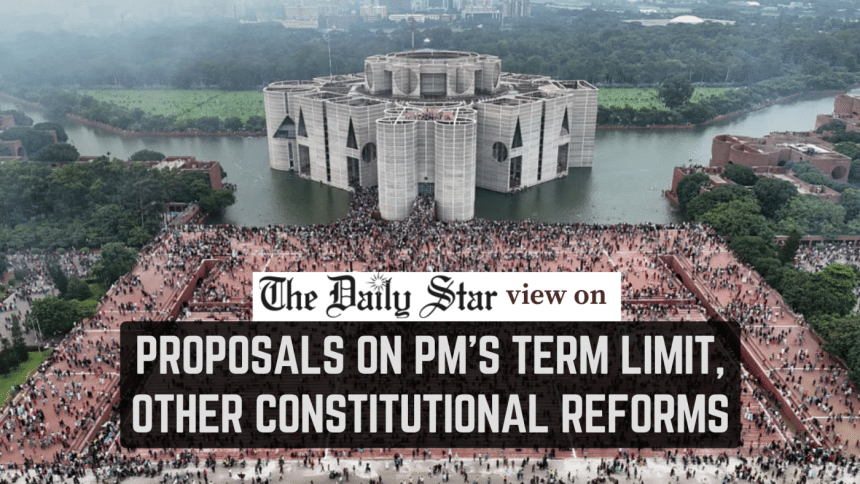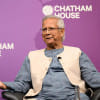Unchecked power at the top must end

We commend the newly formed Nagorik Coalition for bringing some critical issues related to constitutional reforms back into focus and outlining roadmaps for their implementation. Some of the proposals it has forwarded, while not new, deserve proper reflection and consideration—particularly the call to limit a prime minister's tenure to two terms. In a country where autocracy has been enabled by the excessive concentration of executive powers, the proposal seems to be a step in the right direction. However, we believe term limits alone are not enough. What we truly need is a fundamental rebalancing of power to prevent the emergence of another authoritarian regime like that of Awami League.
Sheikh Hasina's rule of 16 years remains a chilling reminder of what happens when too much power is placed in the hands of one individual. It systematically dismantled democratic checks and balances by exploiting constitutional loopholes and turning vital institutions into instruments of partisan control. This was made possible by granting the ousted PM near-absolute authority over the executive, with the legislative and judicial branches duly falling in line. Thus, setting a two-term limit may prevent a repeat of one's continued rule. However, it cannot prevent their continued entrenchment of power by proxy, such as through family members, allies, or loyalists. This distinction is important to remember given our history of dynastic/coalition politics.
Therefore, as some speakers at the Nagorik Coalition event have pointed out, more crucial than term limits is ensuring that no PM can wield unchecked authority. This means implementing robust mechanisms to distribute executive power, strengthen institutional independence, and hold those in power accountable. The proposed establishment of a National Constitutional Council, with representation from all three branches of the state, for appointments in vital institutions can also help ensure greater transparency and accountability.
The coalition's other proposals—such as introducing a bicameral parliament, reviving the caretaker government system, giving constitutional status to the four key parliamentary standing committees, political nomination of women candidates and direct elections to 100 reserved seats for women, and incorporating the July Charter into the constitution—also merit attention. However, the idea of a referendum on the July Charter and constitutional reforms, or of a Constituent Assembly to draft a new constitution, could complicate and unnecessarily delay the process. Instead, the current strategy of achieving consensus on constitutional amendments through dialogue organised by the National Consensus Commission seems to offer a quicker and more practical path. In that respect, it will be wise to have political parties sign some sort of a binding pre-election agreement to ensure the implementation of approved reform proposals.
For, ultimately, lasting reform depends on the compliance and cooperation of political parties. Regardless of which party forms the next government, fundamental agreements must be reached on key principles such as balancing of powers at all levels as well as institutional accountability. Only through such shared commitments can we ensure that our democracy does not again fall prey to unchecked rule.


 For all latest news, follow The Daily Star's Google News channel.
For all latest news, follow The Daily Star's Google News channel. 











Comments